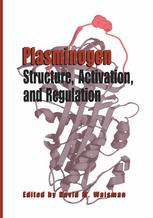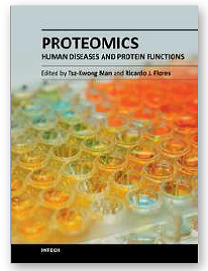Dr Nicholas Andronicos
Associate Professor , Biochemistry and Immunology - School of Science and Technology

Phone: +61 +61 2 6773 3394
Email: nandroni@une.edu.au
Biography
Nick graduated from the University of Wollongong in 2000 with his PhD in Biological Sciences. He undertook his first Postdoctoral Research position (2000-2004) at the Scripps Research Institute in California, USA where he continued his biomedical research into the blood clotting cascade and the immune system. Once back in Australia, Dr Andronicos was employed as a Postdoctoral Fellow and Research Scientist at CSIRO Livestock Industries and used molecular cell biology techniques and transcriptomics to examine the sheep immunological responses due to gastrointestinal nematode parasitism.
In 2013, Nick joined the University of New England as a lecturer in Biomedical Sciences and is currently employed as an Associate Professor and is responsible for teaching biochemistry, immunology and molecular genetics to science and medicine students. Dr Andronicos also leads a research group that primarily investigates animal mucosal immunology as well as prototype vaccine development. Other research projects include autoimmunity and the development of synthetic biology solutions to intractable problems.
Finally, Nick has innovated in the biomedical science teaching arena by designing and developing online, gamified lessons to teach biochemistry and molecular genetics. These teaching innovations were recognised in 2021 with an Australian Award for University Teaching (AAUT) citation.
Qualifications
BSc (HonsI); University of Newcastle
PhD; University of Wollongong
Teaching Areas
My major teaching areas include biochemistry and immunology disciplines and my current teaching portfolio includes the following units:
PSIO350: Immunology and Haematology
Year 2 Medical Biochemistry
Primary Research Area/s
Veterinary Vaccine Development; Mammalian Cell Engineering; Recombinant Protein ExpressionResearch Interests
Vaccine Development
T. colubriformis and H. contortus parasitism is estimated to cost the Australian livestock industry hundreds of millions of dollars every year due to lost productivity and treatment costs. I conduct immunological, cell and molecular biological research at the University of New England focused on developing vaccination strategies that will control gastrointestinal parasitism within livestock. The aim of the research is to understand the cellular and molecular mechanisms of the host responses to parasites and to develop cost effective immuno-therapies that augment protective anti-parasite responses in animals.
Current PhD student projects
- Vaccine development: The aim of this project is to develop experimental vaccines against zoonotic gastrointestinal nematodes that parasitize and kill sheep.
- Parasite co-culture systems: The aim of this project is to develop an intestinal nematode culture system to induce the development of worms in vitro for mechanistic studies.
- Parasite expression systems: The aim of this project is to develop nematode expression systems.
- Intracellular viral response systems: The aim of this project is to examine the the mechanisms of intracellular anti-viral responses.
Note: Honour's Projects are also available as companion projects in these areas.
Publications
See also Scopus
Selected Peer-reviewed Science manuscripts
- Charlesworth, RPG, Agnew, LL, Scott, DR, Andronicos, NM. (2019) Celiac disease gene expression data can be used to classify biopsies along the Marsh score severity scale Journal of Gastroenterology and Hepatology 34 (1), 169-177.
- Sharma, N, Hunt, PW, Hine, BC, McNally, J, Sharma, NK, Iqbal, Z, Normant, C, Andronicos, NM, Swick, RA, Ruhnke, I (2018) Effect of an artificial Ascaridia galli infection on egg production, immune response, and liver lipid reserve of free-range laying hens. Poultry science 97, 494-502.
- Ruhnke, I, Andronicos, NM, Swick, RA, Hine, B, Sharma, N, Kheravii, SK, Wu, S-B, Hunt, P (2017). Immune responses following experimental infection with Ascaridia galli and necrotic enteritis in broiler chickens.
Avian Pathology 46, 602-609 - Andronicos, NM, Henshall, JM, Le Jambre, LF, Hunt, PW, Ingham, AB (2014) A one shot blood phenotype can identify sheep that resist Haemonchus contortus challenge. Vet. Parasitology 205 (3), 595-605
- Corvan, SM, Agnew, L, Andronicos, NM (2014) Trichostrongylus colubriformis induces IgE-independent CD13, CD164 and CD203c mediated activation of basophils in an in vitro intestinal epithelial cell co-culture model. doi:10.1016/j.vetpar.2014.10.012
- McNally J, Callan D, Andronicos N, Bott N, Hunt PW. (2013) DNA-based methodology for the quantification of gastrointestinal nematode eggs in sheep faeces. Vet Parasitol. 198(3-4): 325-35.
- Andronicos NM, McNally J, Kotze AC, Hunt PW, Ingham A. (2012) Trichostrongylus colubriformis larvae induce necrosis and release of IL33 from intestinal epithelial cells in vitro: implications for gastrointestinal nematode vaccine design. Int J Parasitol. 42(3):295-304.
- Nagaraj SH, Harsha HC, Reverter A, Colgrave ML, Sharma R, Andronicos N, Hunt P, Menzies M, Lees MS, Sekhar NR, Pandey A, Ingham A. (2012) Proteomic analysis of the abomasal mucosal response following infection by the nematode, Haemonchus contortus, in genetically resistant and susceptible sheep. J Proteomics. 75(7): 2141-52.
- Ingham A, Menzies M, Hunt P, Reverter A, Windon R, Andronicos N. (2011) Divergent ghrelin expression patterns in sheep genetically resistant or susceptible to gastrointestinal nematodes. Vet Parasitol. 181(2-4):194-202.
- Kadarmideen HN, Watson-Haigh NS, Andronicos NM. (2011) Systems biology of ovine intestinal parasite resistance: disease gene modules and biomarkers. Mol Biosyst. 2011; 7(1):235-46. Epub 2010 Nov 11. Erratum in: Mol Biosyst. 7(12): 3376.
- Menzies M, Reverter A, Andronicos N, Hunt P, Windon R, Ingham A. (2010) Nematode challenge induces differential expression of oxidant, antioxidant and mucous genes down the longitudinal axis of the sheep gut. Parasite Immunol. 32(1):36-46.
- Andronicos NM, Chen EI, Baik N, Bai H, Parmer CM, Kiosses WB, Kamps MP, Yates JR 3rd, Parmer RJ, Miles LA. (2010) Proteomics-based discovery of a novel, structurally unique, and developmentally regulated plasminogen receptor, Plg-RKT, a major regulator of cell surface plasminogen activation. Blood. 115(7):1319-30.
- Andronicos N, Hunt P, Windon R. (2010) Expression of genes in gastrointestinal and lymphatic tissues during parasite infection in sheep genetically resistant or susceptible to Trichostrongylus colubriformis and Haemonchus contortus. Int J Parasitol. 40(4):417-29.
- Miles LA, Andronicos NM, Baik N, Parmer RJ (2006) Cell-surface actin binds plasminogen and modulates neurotransmitter release from catecholaminergic cells. J Neurosci. 26:13017-24.
- Miles LA, Hawley SB, Baik N, Andronicos NM, Castellino FJ, Parmer RJ. (2005) Plasminogen receptors: the sine qua non of cell surface plasminogen activation. Front Biosci.10:1754-62.
- Ranson M, Andronicos NM. (2003) Plasminogen binding and cancer: promises and pitfalls. Front Biosci. 8:s294-304.
Selected Scholarship of Teaching & Learning Manuscripts
- Burns, A, Holford, P, Andronicos, N (2020) Enhancing understanding of foundation concepts in first year university STEM: evaluation of an asynchronous online interactive lesson. Interactive Learning Environments, 1-13.
Peer-reviewed Book Chapters
Miles LA, Andronicos NM, Felez J, Grella DK, Castellino FJ, Gong Y. The role of Lys-Plasminogen in cell-mediated plasmin formation. Pages: 103-119. In: Plasminogen: Structure, Activation and Regulation. Waisman, DM (Ed) Kluwer Academic/Plenum Publishers, New York (2003).
ISBN: 978-1-4613-4949-5 (Print)
978-1-4615-0165-7 (Online) 
Lindsey A. Miles, Nicholas M. Andronicos, Emily I. Chen, Nagyung Baik, Hongdong Bai, Caitlin M. Parmer, Shahrzad Lighvani, Samir Nangia, William B. Kiosses, Mark P. Kamps, John R. Yates III and Robert J. Parmer. Identification of the Novel Plasminogen Receptor, Plg-RKT. Proteomics pages 219-38. In: Human Diseases and Protein Functions Edited by: Tsz-Kwong Man and Ricardo J. Flores. Publisher: InTech, Feb 2012.
ISBN: 978-953-307-832-8

